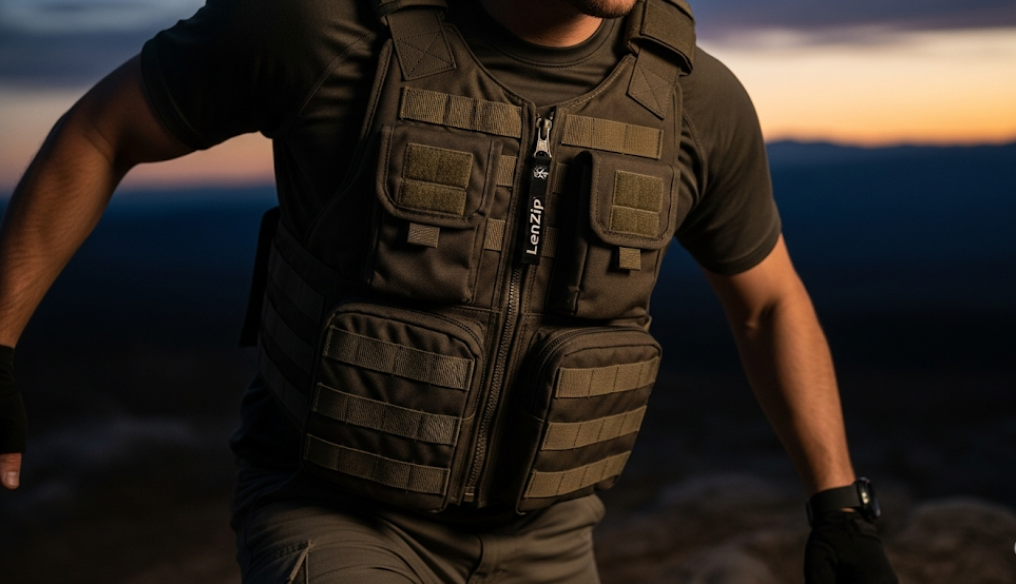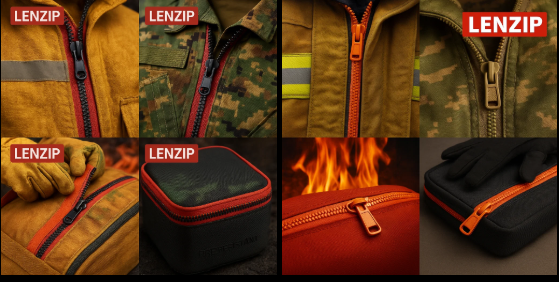The marine environment poses a unique set of challenges for boat covers and enclosures. Constant exposure to saltwater, intense UV rays, and varying humidity demands closure systems that deliver both corrosion resistance and mechanical reliability. As marine design evolves, so do the zippers that secure and protect every vessel. This article explores how emerging technologies are reshaping marine zipper performance — and why partnering with a trusted U.S.-made zipper manufacturer like LenZip ensures lasting value for marine fabricators and boat owners alike.
Marine zippers are fundamental to boat covers, bimini tops, enclosures, and marine upholstery. They provide the link between fabric protection and functionality, sealing out elements while maintaining accessibility. In modern boat design, zippers serve not just as fasteners but as engineered systems that enhance protection, appearance, and service life.
LenZip, drawing on decades of U.S.-based engineering and testing, leads innovation in marine zipper manufacturing — delivering products that meet the highest performance standards for durability, water resistance, and corrosion resistance. Learn how LenZip supports marine fabricators with application-specific solutions built for real-world marine conditions.
Marine Zippers and Their Critical Role
Zippers in marine applications form critical seals that protect vessels from wind, water, and UV degradation. They connect heavy-duty canvas, coated vinyl, or polyester panels into weather-tight structures while maintaining flexibility for everyday use. A well-designed zipper closure can determine how effectively a cover keeps moisture and salt out — influencing everything from comfort to equipment longevity.
Regular care is key to keeping these closures functional through years of exposure. Fabricators and boat owners can extend zipper lifespan by following Zipper Maintenance & Care recommendations for cleaning, lubrication, and inspection.

Challenges in Marine Environments
Saltwater exposure remains the toughest adversary for zipper systems. It accelerates corrosion on metal components and creates mineral deposits that hinder smooth slider movement. UV radiation also degrades fabrics and polymers, weakening zipper tapes and coils over time. Add mechanical wear from tensioned fabrics, flexing motion, and temperature swings — and zipper failure becomes inevitable without proper material selection.
LenZip engineers marine-grade zippers designed specifically to withstand these stressors. Through side-by-side comparison of Nylon vs. Polypropylene for Marine and More, the company demonstrates how advanced polymers outperform traditional materials in resisting salt and UV exposure. Each zipper undergoes rigorous evaluation to exceed Zipper Testing Standards including ASTM tensile, NFPA flame resistance, and MIL-SPEC endurance protocols.
Innovations Driving the Future of Marine Zippers
Breakthrough materials and coatings are redefining zipper reliability in marine environments. The newest generation of closures emphasizes water resistence, corrosion prevention, and sustainability — all while improving user convenience and reducing maintenance demands.
Key Innovations Driving Marine Zipper Performance
- Advanced Coatings & Finishes – Anti-corrosive, UV-blocking layers protect both metal and polymer components from saltwater damage.
- Water Resistant Zipper Designs – Laminated tapes, sealed coil structures, and integrated flanges enhance protection for full boat enclosures.
- Self-Lubricating Sliders – Maintenance-free designs minimize friction and resist salt buildup, ensuring smooth operation.
- Engineered Polymer Materials – Polypropylene and other engineered resins deliver superior strength and flexibility versus traditional nylon.
- Sustainability Initiatives – Recyclable materials and low-emission coatings reduce environmental impact across the marine industry.
- Readers can explore these advancements in Zipper Materials & Finishes and compare polymer strengths in Polypropylene vs. Polyester. For a quality comparison against global competitors, review LenZip vs. YKK.
Research by the NOAA Marine Materials Program supports the importance of corrosion-resistant, long-life components in extending marine equipment performance.
How Innovation Extends Boat Cover Lifespan
These innovations directly translate into longer-lasting marine products. UV-resistant finishes prevent brittleness, while corrosion-proof coatings preserve zipper teeth and sliders against saltwater degradation. Hydrophobic surfaces shed moisture and prevent mildew accumulation, keeping covers cleaner and easier to operate.
Upgraded slider mechanisms resist jamming and fatigue, reducing replacement cycles and maintenance downtime. In essence, zipper innovation reduces ownership cost while improving user satisfaction — a critical factor for marine fabricators and OEMs. For specification guidance, review Choosing the Right Zipper and study component interaction in the Guide to Zipper Teeth, Sliders, and Their Parts.
Customization for Marine Fabricators
Every vessel design demands a unique approach. Marine fabricators rely on custom zippers to meet size, strength, and environmental requirements for covers, cushions, and enclosures.
Custom Marine Zipper Options
- Tailored lengths for large or contoured enclosures
- Color-matched zipper tapes to align with marine branding
- Non-magnetic sliders safe for navigation instruments
- Chain gauges scaled for light or heavy covers
- Optional double sliders for multi-access openings
LenZip Custom Zippers allow marine professionals to specify each component precisely. Ordering is simplified through Request a Quote.
Industry insight from Boating Industry Magazine highlights the growing demand for bespoke closure solutions that integrate aesthetics, function, and durability.

Sustainability and Eco-Friendly Innovation
Environmental responsibility is becoming central to marine manufacturing. LenZip incorporates recyclable materials and low-emission coatings that meet strict U.S. environmental standards. Domestic production minimizes transportation emissions while ensuring traceability from raw material to final product.
These sustainable practices align with marine industry goals for reduced ecosystem impact, echoing the stewardship principles advanced by NOAA. Learn more about LenZip’s mission in About Us and its dedication to quality and sustainability in Why Choose LenZip.
Why U.S.-Made Marine Zippers Matter
Choosing a U.S.-based zipper partner delivers unmatched consistency, responsiveness, and reliability. Domestic manufacturing ensures tight quality control, traceability, and quick lead times — vital in marine fabrication where project timelines are often weather-dependent.
LenZip’s full Resources library and article on Finding Industrial Strength Zippers for Any Project detail how American craftsmanship and on-site engineering support create measurable advantages for marine OEMs.
Conclusion: Setting the Standard for the Next Wave of Marine Zippers
Partnering with a U.S.-based zipper manufacturer offers more than convenience — it ensures quality, longevity, and sustainable performance. Domestic production provides direct engineering collaboration, shorter supply chains, and verified testing — all crucial to meeting the evolving expectations of marine professionals.
For corrosion-proof, water resistant, and custom-fit zipper systems built to endure salt, sun, and sea, partner with LenZip — America’s trusted zipper manufacturer since 1946.
Request a Quote today to upgrade your next boat cover or marine fabrication project: Request a Quote.
FAQ: Marine Zipper Innovations
What makes a zipper “marine-grade”?
Marine-grade zippers use corrosion-resistant materials, UV-stable coatings, and water resistant constructions tested to survive prolonged saltwater exposure and heavy mechanical stress.
How do water resistant zippers improve boat covers?
Laminated tapes and sealed coil structures prevent water ingress, protecting both the vessel and cover materials from moisture damage and extending cover longevity.
Can zippers resist saltwater corrosion?
Yes. Hydrophobic coatings, anti-corrosion finishes, and polymer materials like polypropylene maintain smooth function despite continuous salt exposure.
Does LenZip create custom zippers for marine use?
Absolutely. LenZip designs and manufactures custom marine zippers with specific lengths, colors, slider types, and coatings for every type of boat enclosure.
How does LenZip test marine zippers for performance?
Each zipper is validated through ASTM, NFPA, and MIL-SPEC testing to verify tensile strength, corrosion resistance, flame safety, and UV durability in marine conditions.
